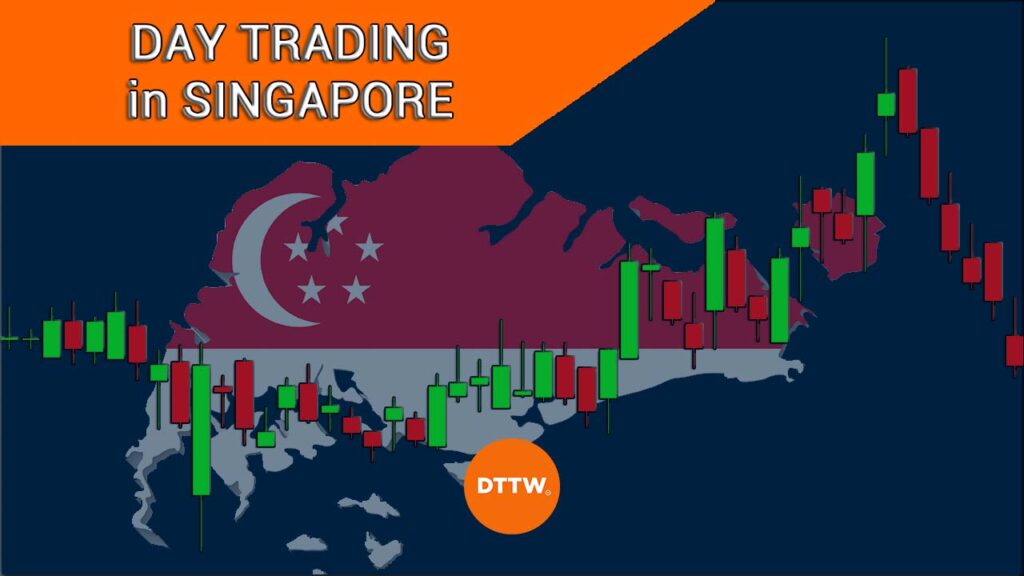Singapore is a small city-state with a population of over 5.6 million people and a GDP of almost $400 billion. It is a fast-growing place, with a leading presence in key sectors like finance, manufacturing, and trade.
In this article, we are going to see what are the key points of the country and how to do day trading in Singapore.
Table of Contents
Singapore’s growing financial sector
A key factor in Singapore’s ongoing economic growth is the financial sector. Many foreign investors have flocked to Singapore, which they see as a better alternative to Hong Kong after China imposed the national security law.
As a result, many hedge funds, investment banks, and private equity companies have set up shop in Singapore. Data by the Monetary Authority of Singapore (MAS) shows that over 1,100 hedge funds are now operating in the city.
Many international banks like Goldman Sachs, JP Morgan, and Citigroup have set up offices in Singapore. And Singapore banks like DBS Group, OCBC Bank, and UOB Bank are the three biggest Singapore companies, respectively.
Publicly-traded companies in Singapore
One asset class that people can day trade in Singapore is stocks. Stocks, also known as shares, are small parts of companies that one can buy.
For example, publicly-traded companies like Apple, Microsoft, and Google are owned by thousands of people. Anyone with as little as $100 can buy these shares.
The Singapore stock exchange has hundreds of companies that have a combined market cap of over $653 billion. The biggest companies in the index are DBS Group, OCBC Bank, UOB, Singtel, Wilmar International, and Singapore Airlines among others.
There are three main Singapore stock indices:
- FTSE Singapore
- MSCI Singapore
- STI Index
The most popular and liquid of these is the Strait Times Index (STX), which is made up of 30 of the biggest companies in Singapore. Other companies in the index are CityDev, Emperador, Frasers, Genting Sing, and CapitalLandInvest.
How to day trade in Singapore
There are a few steps that you need to follow when day trading. First, as in all countries, you need to first learn about how the financial market works.
This involves learning about concepts like technical and fundamental analysis, trading psychology, and risk management. These are very important concepts that you need to master.
Second, learn more about day trading and investing taxes in Singapore. One of the best things about Singapore is that there are no capital gains in the country. This means that sale of stocks at a profit does not lead to taxation.
However, as a day trader, you need to pay income taxes. The rate starts at 0% and then rises to 22% for those making more than S$320k.
Related » Tax Strategies for day Traders
Third, you should select a good online broker in Singapore. Some of the things you need to do is to ensure that the broker is regulated, has the assets that you need, and has reasonable fees. Finally, you should start day trading using the skills you learnt in the first stage.
Other assets to day trade in Singapore
In addition to locally-listed companies, day traders in Singapore can trade other financial assets. The most popular assets are currencies (forex), commodities, cryptocurrencies, and bonds among others. Also, these traders can buy and sell international stocks and exchange-traded funds (ETFs).
One way of trading these assets is using online trading companies like Moomoo, Interactive Brokers, and Saxo Markets among others. Most importantly, people in Singapore can take advantage of products like our CubeX™ to set up their trading floors.
A trading floor is part of prop trading, where at least five people trade using funds provided by the main company. The trading floor then receives the lion’s share of the profits it makes. At Real Trading, we have a good number of trading floors in Singapore.
Trading the Singapore dollar
The Singapore dollar is the main currency used in the country. But on a global scale, the currency is not all that popular. Still, it is possible to day trade it since it is provided by many online forex trading companies.
There are several factors that move the Singapore dollar. First, the forex pair is affected by the actions of the Monetary Authority of Singapore (MAS), which acts as the de-facto central bank in Singapore. The agency makes decisions such as raising and slashing interest rates when needed.
There are other factors that affect the Singapore dollar. Like other currencies, it is affected by inflows from foreign companies and investors. It is also affected by trade flows in and out of Singapore.
Related » Exotic Currency Pairs
In this regard, traders watch Singapore exports and imports. The biggest Singapore exports are products like machinery and equipment, petroleum, chemical products, and other manufactured products.
The top Singapore imports are machinery, mineral fuels, gems and precious metals, and other optical and medical apparatus. Importantly, traders watch Singapore exports excluding petroleum products.
While Singapore is not a big oil producer, it has a leading market share in the industry since it is one of the biggest trading destinations in the world. Some of the biggest trading companies in Singapore are Gunvor, Trafigura, Vitol, and Glencore.
FAQs
Is day trading in Singapore legal?
What are the trading taxes in Singapore?
How much money do you need to start trading in Singapore?
External useful resources
- Singapore: The Reasons Behind Its Economic Success – Hospitality Insight





